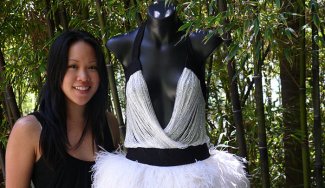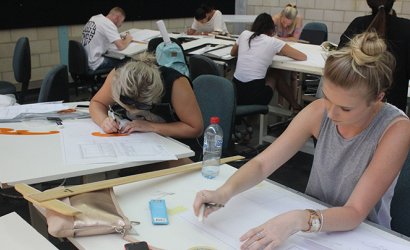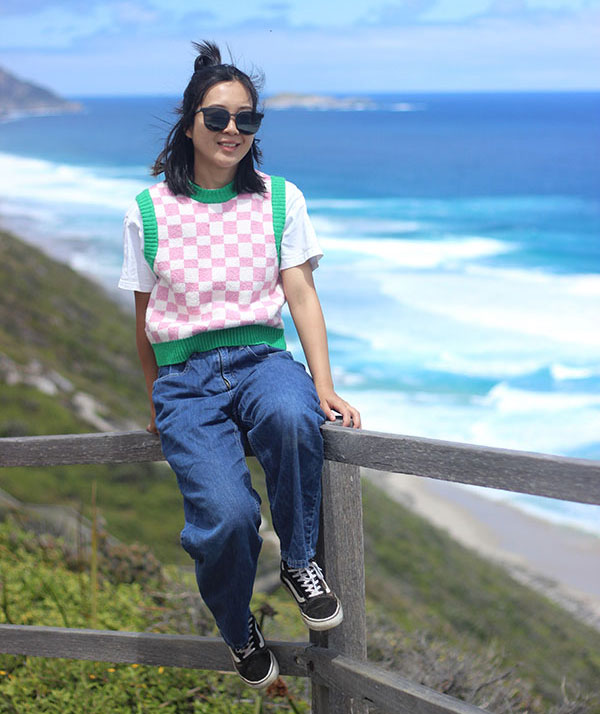

Why choose this course?
Step into the exciting world of fashion with a course designed for new designers and garment makers. This intensive foundation programme helps you build strong technical skills and creative thinking. You will learn everything you need to succeed in today’s global fashion industry.
From your first stitch to your final garment, you will develop expert skills in making clothes. Train in a studio-simulated classroom using professional equipment, including embroidery and stretch specific machines.
Turn fabric into fashion. Learn how to balance creativity and technical skill to design clothing that is both beautiful and wearable. You will explore textile materials and learn how to bring your ideas to life through hands-on practice.
Discover how fashion works from start to finish — from raw fibre to finished garment. Study textile technology, patternmaking, cutting, and writing specifications. You will also learn how to include sustainable practices in every step of the process.
With strong creative and technical skills, you will be ready to enter the fashion industry with confidence. This course prepares you for many exciting career paths in fashion around the world.
Career opportunities
- Alterations Technician
- Assistant Patternmaker
- Design Assistant
- Production Machinist
When choosing a course, it's important to think about the key skills and knowledge you'll need, as well as how you'll be assessed. Take a look at this information and consider if you might face any challenges in meeting the course expectations and requirements.
- ability to follow workplace safety standards
- an eye for detail
- good hand-eye coordination
- effective time management
-
An IELTS score (academic) of 6.0 with no band score less than 5.0 or equivalent.
-
Completion of the equivalent of Australian Year 10.
There may be further semester intakes available for enrolment. You can view any further intakes when you submit your online application(opens in a new tab).
For information about pathways from TAFE to university, view our Pathways to university page.
How to apply
Apply to study at TAFE in six steps:
- find a course;
- check entry requirements;
- submit an application;
- accept your offer and pay;
- apply for your student visa; and
- receive your visa and come to Australia for your studies.
TIWA Course Guide
A guide to studying at TAFE in Western Australia, including study options, facilities and campus locations!
Download study area guide(opens in a new tab)
Contact us(opens in a new tab)
TAFE International Western Australia (TIWA) is the Registered Training Organisation (RTO) and Commonwealth Register of Institutions and Courses for Overseas Students (CRICOS) provider, for the delivery of training to international students, enrolled in a TAFE course in Western Australia. This nationally recognised course is delivered by a Western Australian TAFE college on TIWA's behalf. TIWA retains responsibility for the quality of the training and assessment delivered by the TAFE colleges and for the issue of certification documentation to students.


